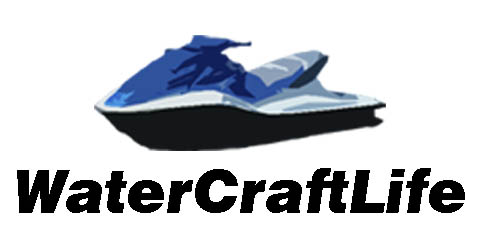At the end of the season, every boat owner has to have a plan for what to do with the craft when it gets cold. There are a number of things you can do, whether you’re leaving it on the water or on land, to protect it from the dropping temperatures. Pontoon boats, in particular, are prone to damage when it comes to freezing temperatures.
You should never leave your pontoon boat on the water for the winter because it creates a lot of potential problems such as a cracked engine block, water in the bilge, or damaged pontoons. The best way to store your pontoon boat is covered up and out of the water.
The best choice for winter storage is obviously out of water, but that isn’t always possible. The rest of this article will explain what happens when you leave your boat on the water in freezing temperatures, how you should really be storing it during the winter, and what to do if you have to leave the boat on the water.
Why would people want to want to leave a boat on the water all winter?
There are several reasons why people want to keep their boat on the water for the winter season. The main reason is necessity. Not everyone has access to a trailer to take the boat out of the water. Others do not have the space to store the boat for the season. Last, people might not live anywhere near the water where their boat is stored, so the hassle of moving it back and forth for the seasons is too much work to be worth it.
Whatever the reasons for staying on the water, you should properly winterize your boat and store it in a safe, covered location before leaving it there. If you don’t, you will return to find a lot of problems.
What happens if I leave my pontoon boat on the water all winter?
If you leave your pontoon boat out on the water for the winter, you put it at risk for damages that will cost you a lot of money. Ice and frozen temperatures are risky for any boat, but especially so for a pontoon.
When the water freezes and ice builds up around your boat, the extra weight pulls your boat down and lets water in, eventually causing a gradual sink. Sometimes, ice forms all around the exterior and in some cases will damage parts of the boat.
If you don’t winterize the boat, your engine may crack. Frozen water in the outboard means eventual damage to the engine. When you are storing your boat on the water for the winter, make sure to leave the engine in the trimmed down position so that all the water drains out. If you leave it up, water will freeze in the engine and cause it to crack. Even if you’ve drained the water out of it before storing, moisture can still get in from weather.
The last thing that can happen if leaving your boat on the water is the air pressure may not be enough to keep the ice from expanding and puncturing the pontoons.
How should I store my pontoon boat for winter?
Taking your boat out of the water and storing it properly is the best bet for keeping maintenance costs down. Many marinas won’t even let you store your boat for the winter, so you may be forced to take it out. However, taking the boat out of the water isn’t enough to keep it safe.
Pontoon boats should not be set directly on the ground as it can warp the deck and cause damage to the pontoons themselves. Many people place the boat evenly on a trailer, storage blocks, dollies, or nested boat stands to keep it off the ground. Others keep their boats at the marina, using cranes to move boats into dry storage.
If you store your boat out of water, consider the possibility of a pest invasion during the winter. Critters will seek shelter in your boat if you don’t protect it using the same measures you would for your home.
Next, clean out the boat completely and wipe down everything to keep mildew from building up. On the outside of the boat, clean off any mussels, algae, or dirt that has accumulated.
Once the boat has been winterized and protected against pests, put a tight-fitting cover over it. Place something on the inside of the boat to hold up the cover so moisture doesn’t build up on the top.
What if I have to leave my pontoon boat it on the water all winter?
If you do have to leave your pontoon boat on the water all winter, then you should rent a covered marina slip to protect it. A marina slip is a “parking space” surrounded on three sides by the deck with only one side open for entering and exiting. If you’re storing the boat for all winter, make sure to rent a covered slip so your boat stays protected from the elements.
Renting a marina slip can be expensive, however, and are usually paid for by the month. Prices are most often determined by the length of the boat and are anywhere from $20-$75+ per foot. Costs are even higher when you rent out a covered slip.
An important thing to look for when choosing a marina to dock in is if they have a de-icing system. Many wet storage marinas use bubblers or ice eaters to keep too much ice from building up.
If you only have a private marina to store your boat, consider purchasing a circulator (also known as an aerator) or bubbler. These work by continuously ejecting warmer water to the surface near your boat to keep ice from forming.
How do I winterize my pontoon boat for staying on the water?
If you decide to leave the pontoon boat on the water, start by placing the engine in the trimmed down position to keep water from freezing in it.
Continue by cleaning it from top to bottom, just as you would do if you were storing it outside of the water. Clean both the inside and the outside of the boat as best as you can. Take out any lifejackets, coolers, fishing poles, or other objects that you don’t want sitting in the boat all winter. Less is more.
After you’ve removed every extra item from the boat and wiped it down, leave it to dry completely. Mildew is especially easy to form on a boat that’s on the water.
Just like winterizing it for out-of-water storage, take necessary precautions against pest invasions. Pests will still be attracted to the shelter your boat provides even if it’s on the water.
Next, prepare your engine for winter storage by spraying fogging oil into the spark plug holes and the carburetor to create a protective layer.
Then, fill the gas tank. It is very important that you keep a full or near-full gas tank over the winter so it doesn’t change the temperature in the gas tank with condensation. Also add fuel stabilizer to prevent the fuel from going bad.
Drain the coolant from your engine and replace with propylene glycol antifreeze. You do not want to use ethylene glycol because it releases toxins into the water.
Most people recommend taking the battery out of the boat for the winter and storing it in a cool, dry place. If you don’t have it at high enough of a charge, it will die and become ruined in the cold. However, you need a battery charge to activate the bilge pump on the boat if it staying on the water. A solar trickle charger will help keep your battery topped off in the winter.
If the boat is on the water for the winter, connect the battery to a trickle charger or maintainer. If there’s no charge on the battery, water will make its way into the bilge.
Once you’re finished winterizing, place a mooring cover over the boat. A covered slip won’t protect your boat from animals or debris making its way into it throughout the winter, so the extra covering gives you the best protection possible. You should get a custom cover that fixes the exact dimensions of the boat. Now it’s ready for winter.
That’s all!
To finish up, it is best if you store your pontoon boat out of the water during winter to protect it from ice and frozen temperature damage. However, the boat is not completely protected from damage even if it is out of water. Taking the proper measures to winterize and store the boat in a safe place will keep you from facing problems and keep maintenance costs down once the weather begins to warm up.
If you do decide to leave it on the water, winterize it correctly and park it under a covered marina slip. Once that’s done, turn on the bubbler (or aerator) to keep the water moving throughout the season. Now your boat is all set and will be ready for the next season.

